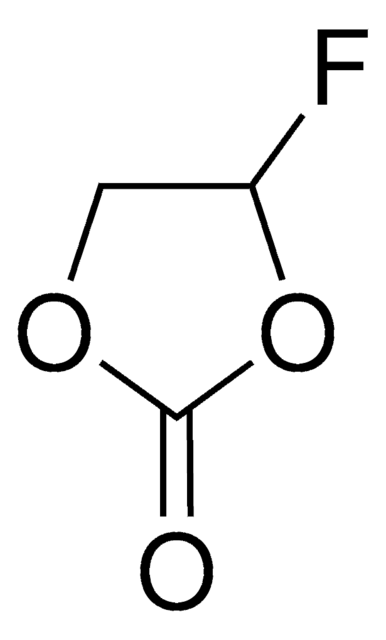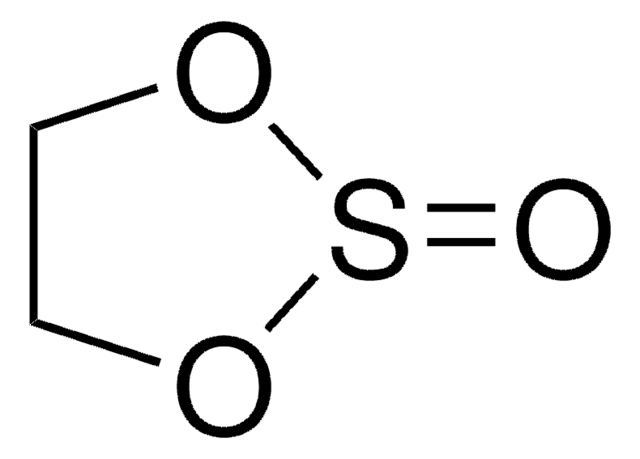V2607
Vinylene carbonate
contains ≤2% BHT as stabilizer, 97%
Synonym(s):
1,3-Dioxol-2-one, VC
About This Item
Recommended Products
Quality Level
Assay
97%
contains
≤2% BHT as stabilizer
refractive index
n20/D 1.421 (lit.)
bp
162 °C (lit.)
mp
19-22 °C (lit.)
density
1.355 g/mL at 25 °C (lit.)
storage temp.
2-8°C
SMILES string
O=C1OC=CO1
InChI
1S/C3H2O3/c4-3-5-1-2-6-3/h1-2H
InChI key
VAYTZRYEBVHVLE-UHFFFAOYSA-N
Looking for similar products? Visit Product Comparison Guide
Related Categories
related product
Signal Word
Danger
Hazard Statements
Precautionary Statements
Hazard Classifications
Acute Tox. 3 Dermal - Acute Tox. 4 Oral - Aquatic Chronic 2 - Eye Dam. 1 - Skin Irrit. 2 - Skin Sens. 1 - STOT RE 2 Oral
Target Organs
Liver,Stomach
Storage Class Code
6.1C - Combustible acute toxic Cat.3 / toxic compounds or compounds which causing chronic effects
WGK
WGK 3
Flash Point(F)
163.4 °F - closed cup
Flash Point(C)
73 °C - closed cup
Personal Protective Equipment
Regulatory Listings
Regulatory Listings are mainly provided for chemical products. Only limited information can be provided here for non-chemical products. No entry means none of the components are listed. It is the user’s obligation to ensure the safe and legal use of the product.
PRTR
Class I Designated Chemical Substances
FSL
Group 4: Flammable liquids
Type 3 petroleums
Hazardous rank III
Water insoluble liquid
ISHL Indicated Name
Substances Subject to be Indicated Names
ISHL Notified Names
Substances Subject to be Notified Names
JAN Code
V2607-1G:
V2607-VAR:
V2607-500G:
V2607-25G:4548173960753
V2607-1KG:
V2607-BULK:
V2607-5G:4548173960760
Choose from one of the most recent versions:
Already Own This Product?
Find documentation for the products that you have recently purchased in the Document Library.
Customers Also Viewed
Our team of scientists has experience in all areas of research including Life Science, Material Science, Chemical Synthesis, Chromatography, Analytical and many others.
Contact Technical Service














